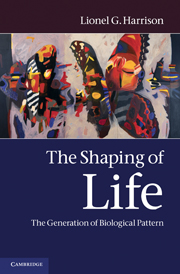Preface
Published online by Cambridge University Press: 05 July 2011
Summary
This book is intended for anyone who is interested in contemplating the question posed in the title, and who has a modicum of general scientific education. It is not directed specifically to people working in the sciences; and of those who are, it is not specifically for physical or biological scientists. It is mainly for people who would like to think about unsolved questions rather than to receive answers. Thus, it is not a review of any specific specialized field, and particularly not of those aspects of biology that have recently been producing answers most rapidly – the aspects to do with genes and genomes and the daily increasing number of words ending in the sacred syllable –ome. My subtitle, ‘the kinetic aspect’, implies that I am interested much more in how rapidly things happen to various objects than in what the objects are. Further, I believe that the study of rates of change can often be pursued as a primary objective, independent of knowing in advance the material composition of the objects that are changing. (Perhaps not only the primary objective, but also the ultimate – philosophers have long pondered whether the deepest understanding of the universe must be in terms of matter or motion.) This implies that if I consider a biological phenomenon and have the urge to find out ‘what is doing it’, I am not usually trying to find the name or formula of a substance or molecule, but rather the forms of some expressions showing how the amounts or concentrations of a few substances must be changing in space and time.
Information
- Type
- Chapter
- Information
- The Shaping of LifeThe Generation of Biological Pattern, pp. xv - xxivPublisher: Cambridge University PressPrint publication year: 2010
